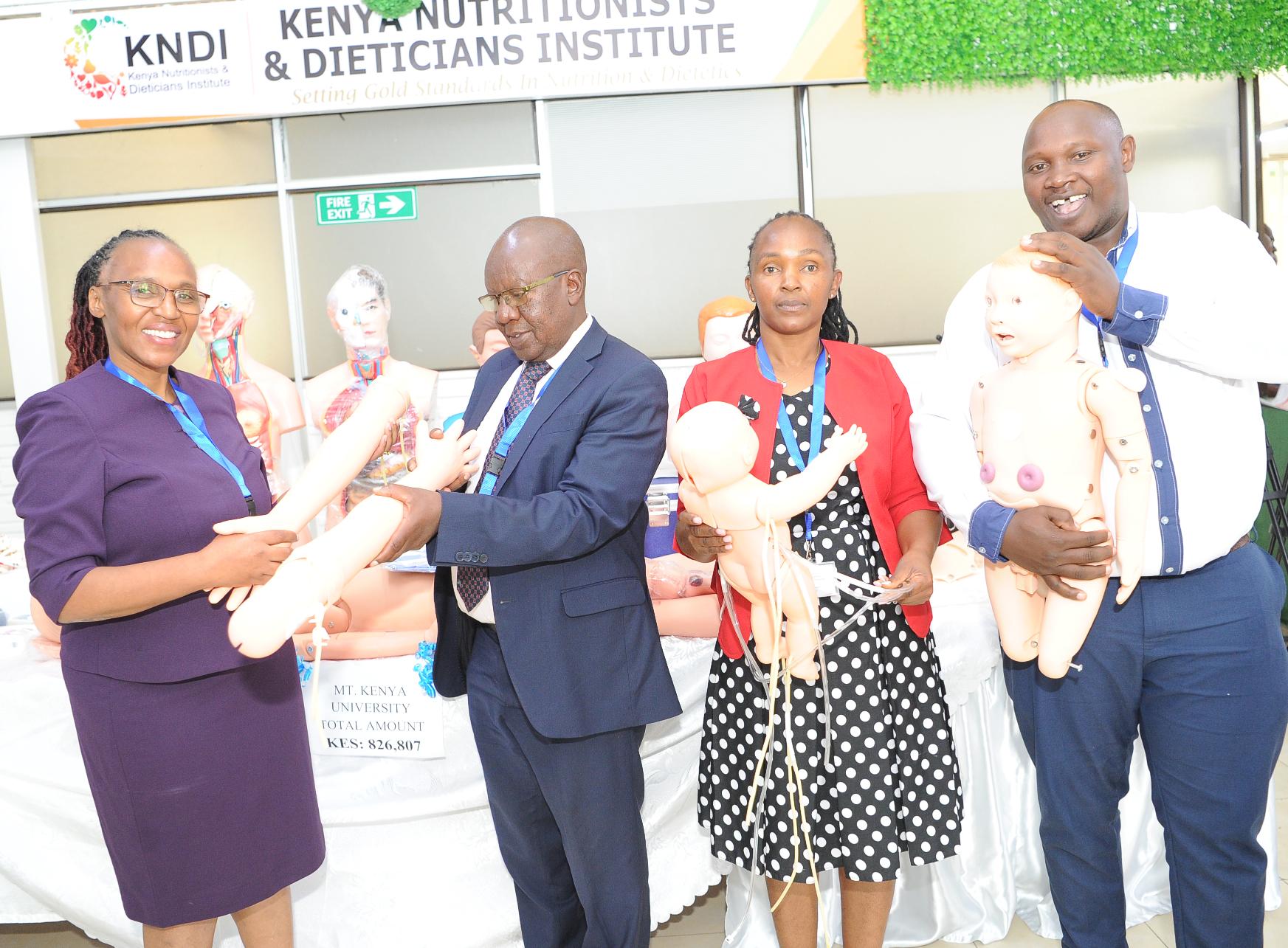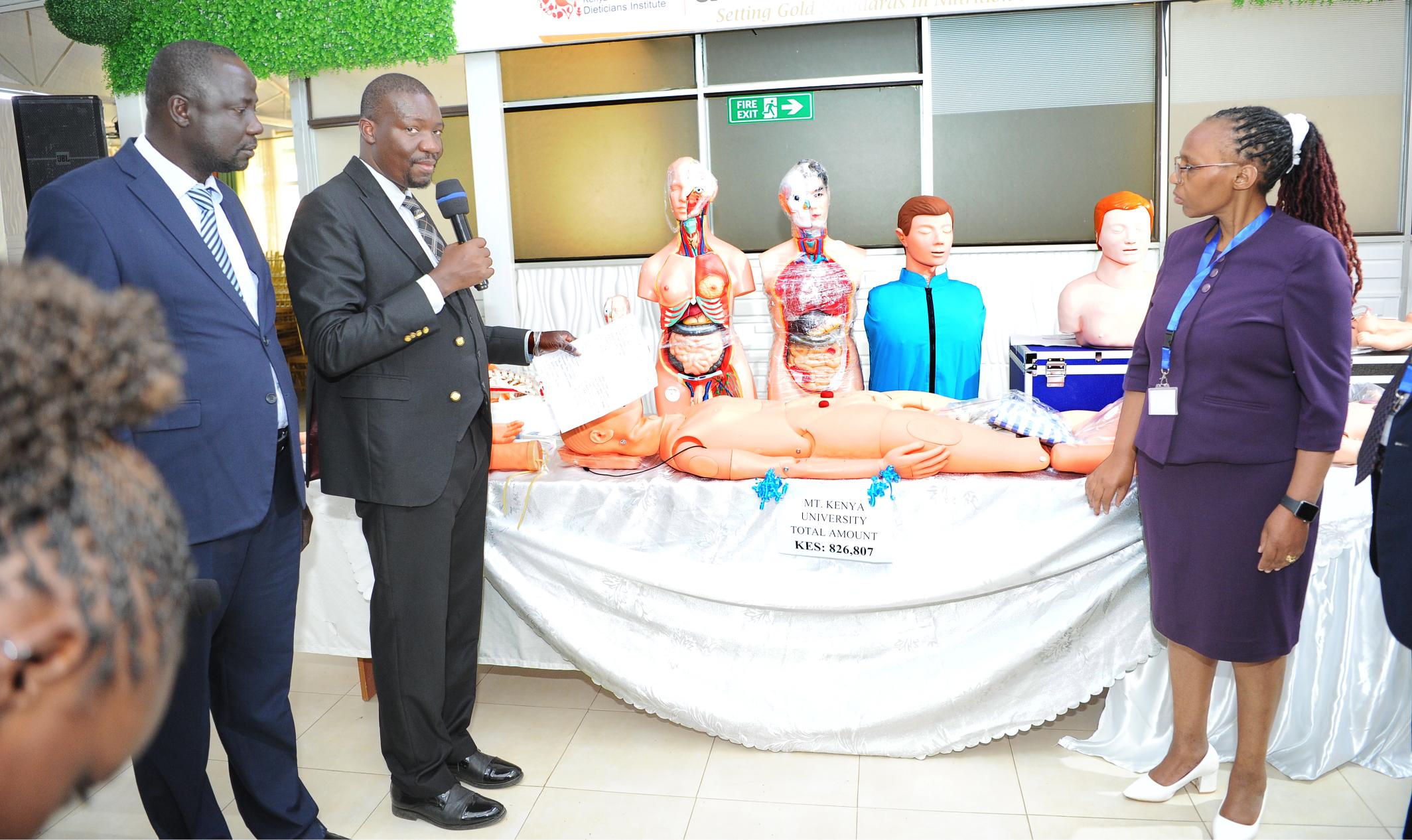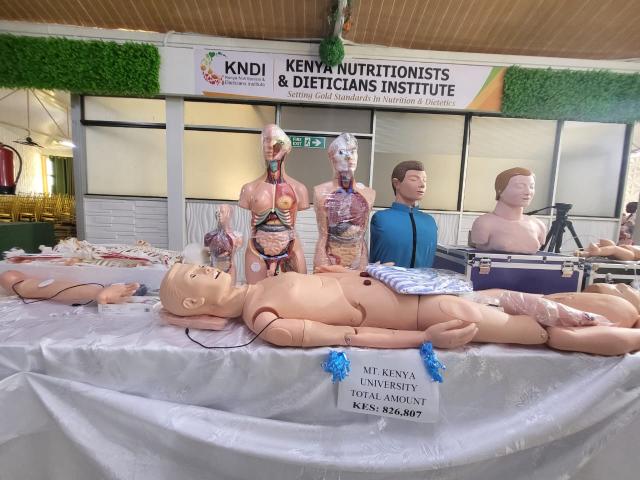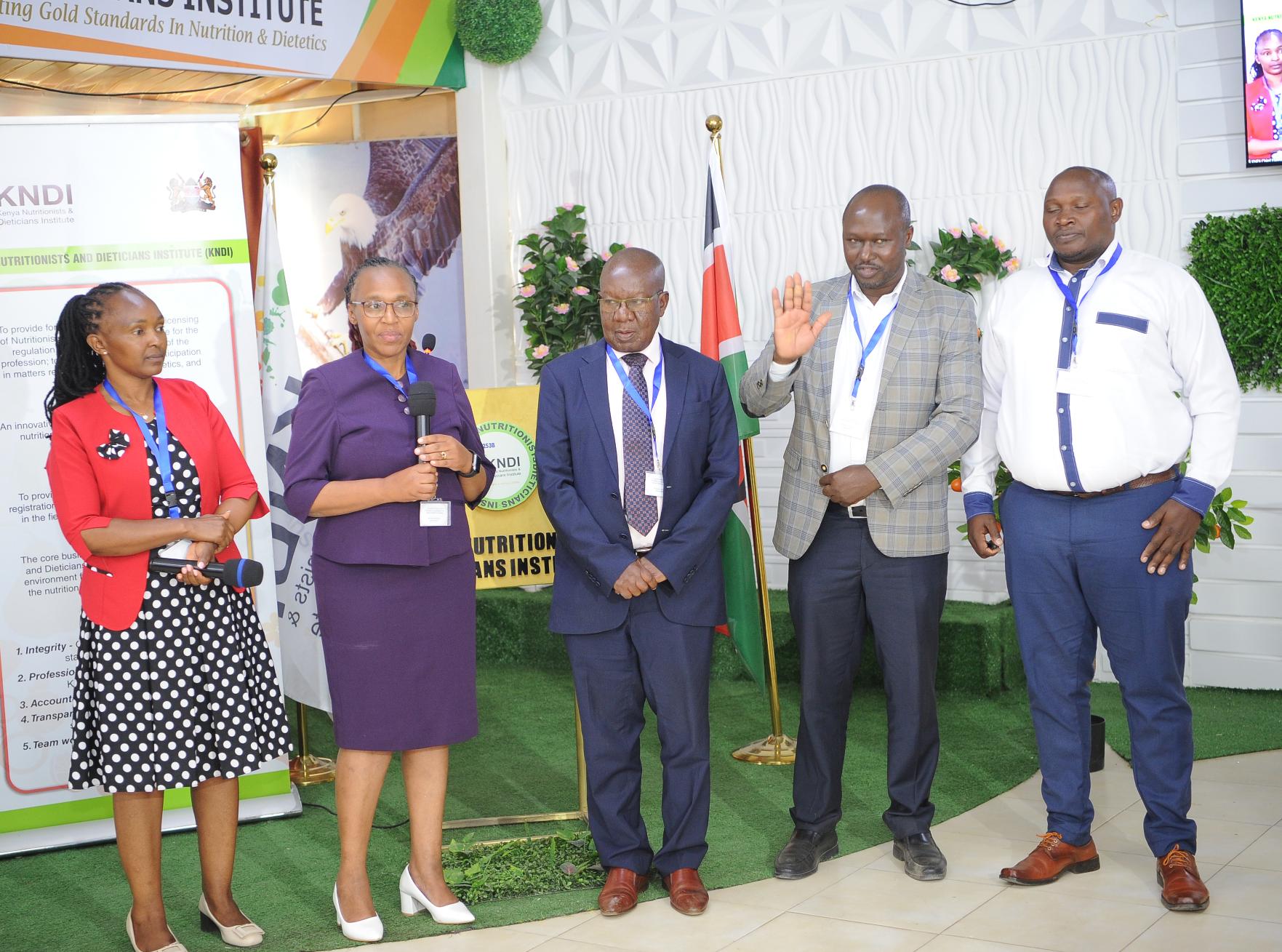



KNDI said it will be requiring institutions to standardise training equipment, including the clinical manikins
David Okeyo chief executive Kenya Nutrition and Dietetics Institute (KNDI), the regulatory body for nutritionists, said there was a need to standardise training, noting that graduates that they produce play a critical role in the country’s health sector.
This includes equipping laboratories with the necessary equipment.
He spoke when KNDI handed over clinical manikins to Mount Kenya University, which the institution said would help improve training students pursuing nutrition and dietetics studies.
Other institutions that received the clinical mannequins are Kabete National Polytechnic, Nuria College, that is based in Wajir and Vision Empowerment Training Institute in Kitengela.
Clinical manikins, which are also used in training students in other medical fields, are essential in enabling nutritionists to understand the human anatomy. He noted that labs by many institutions lack proper training equipment, including the mannequins.
“In training nutritionists, we have a specialised lab which is called pre-clinical skills lab. This is where many institutions have performed poorly when it comes to setting up for pre-clinicals,” he said.
“During inspections, the KNDI team is keen on laboratories, and all the labs must meet the required standards. This is important because it is where we train the students to build their clinical skills before they go to the service area.”
He also noted that many institutions may have failed to invest in facilities to train nutritionists because of the wrong perception that the field is not a medical course.
“In our review processes, we have noted on several occasions that the position of nutrition and dietetics is not clear in the medical profession. Some institutions do not recognise nutrition as a medical programme,” said Okeyo.
Currently, 83 institutions admit students for programmes of nutrition and dietetics in the country. KNDI started regulating the profession in 2009 and noted the number of licensed nutritionists had risen from 900 to 14,200 currently in the country.
This is, however, a far cry from the number of nutritionists that the country needs, with KNDI saying Kenya needs at least 60,000 nutritionists.
Okeyo noted MKU has been among the institutions that have been among the first institutions that heed regulator’s requirements for institutions of higher learning to make improvements on their training facilities for training of nutritionists.
“We believe in working with regulators because they define the profession. As we work towards equipping our professionals, we will work with regulators such as KNDI,” said DVC Kamande
“The reason why we always take the lead as an institution is because you have always guided us. It is only fair and ethical to train our professionals well.”
During the occasion, KNDI also said it is in talks with the government to reduce taxes on equipment used for training nutritionists in the country including clinical manikins.
This, Okeyo said, would help standardise training of professionals.
“We started with developing the curriculum, which is now in place. Now we must train with the same tools and manikins must be of the same standards, so that when the students meet at the hospitals, they will be speaking the same language,” said Okeyo.
The introduction of standardised training equipment is also geared to prepare higher institutions of learning to receive young Kenyans who have been learning under the Competency Based Curriculum (CBC).












